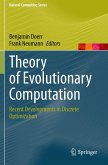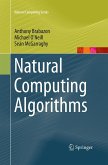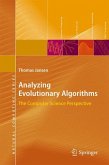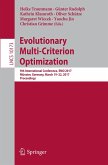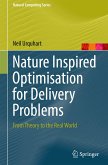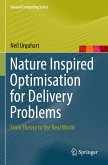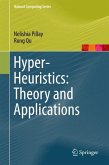This edited book reports on recent developments in the theory of evolutionary computation, or more generally the domain of randomized search heuristics.
It starts with two chapters on mathematical methods that are often used in the analysis of randomized search heuristics, followed by three chapters on how to measure the complexity of a search heuristic: black-box complexity, a counterpart of classical complexity theory in black-box optimization; parameterized complexity, aimed at a more fine-grained view of the difficulty of problems; and the fixed-budget perspective, which answers the question of how good a solution will be after investing a certain computational budget. The book then describes theoretical results on three important questions in evolutionary computation: how to profit from changing the parameters during the run of an algorithm; how evolutionary algorithms cope with dynamically changing or stochastic environments; and how population diversity influencesperformance. Finally, the book looks at three algorithm classes that have only recently become the focus of theoretical work: estimation-of-distribution algorithms; artificial immune systems; and genetic programming.
Throughout the book the contributing authors try to develop an understanding for how these methods work, and why they are so successful in many applications. The book will be useful for students and researchers in theoretical computer science and evolutionary computing.
It starts with two chapters on mathematical methods that are often used in the analysis of randomized search heuristics, followed by three chapters on how to measure the complexity of a search heuristic: black-box complexity, a counterpart of classical complexity theory in black-box optimization; parameterized complexity, aimed at a more fine-grained view of the difficulty of problems; and the fixed-budget perspective, which answers the question of how good a solution will be after investing a certain computational budget. The book then describes theoretical results on three important questions in evolutionary computation: how to profit from changing the parameters during the run of an algorithm; how evolutionary algorithms cope with dynamically changing or stochastic environments; and how population diversity influencesperformance. Finally, the book looks at three algorithm classes that have only recently become the focus of theoretical work: estimation-of-distribution algorithms; artificial immune systems; and genetic programming.
Throughout the book the contributing authors try to develop an understanding for how these methods work, and why they are so successful in many applications. The book will be useful for students and researchers in theoretical computer science and evolutionary computing.
"The eleven chapters of the book cover a remarkable range, and indeed it is astonishing to realise just how much has been achieved in the two decades since this approach to EA research began. ... if you are working in the theory of evolutionary algorithms (or aspire to), then you really need this book. If you are interested in what theory has to say about specific topics, then you will also find much of importance." (Jonathan E. Rowe, Genetic Programming and Evolvable Machines, Vol. 25 (2), 2024)


